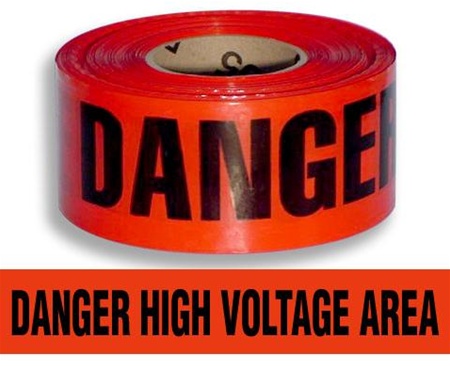Electricity Injures When Not Respected By You: How To Respect Electrical Current from Corine Streicher's blog

In electrical injuries there are 4 primary types of injuries: electrocution (will cause death), electric shock, burns, and falls. These injuries can originate from direct contact with the electrical energy, electrical arcs that leaps to an individual who is grounded, thermal burns including flash burns from heat produced by an electrical arc, flame burns from materials that capture on fire from heating or ignition by electrical currents, and muscle contractions can trigger an individual to fall. The fall can trigger severe injuries likewise. High voltage contact burns can burn internal tissues while leaving just extremely little injuries on the exterior of the skin. It is a known fact that your company has awesome electrical safety processes in place to stop electrical injuries.
There are some protect tasks that can be followed to ensure electrical safety:
- Inspect tools, power cords, and electrical fittings for damage or use prior to each use. Repair or change broken equipment immediately.
- Always tape cables to walls or floorings when essential. Nails and staples can harm cords triggering fire and shock dangers.
- Use cords or equipment that is ranked for the level of amperage or wattage that you are using.
- Always utilize the right size fuse. Replacing a fuse with among a larger size can cause excessive currents in the wiring and potentially start a fire.
- Be mindful that uncommonly warm or hot outlets might be an indication that hazardous circuitry conditions exists. Unplug any cables to these outlets and do not use till a qualified electrical contractor has examined the wiring.
- Always use ladders made of wood or other non-conductive materials when working with or near electrical energy or power lines.
- Place halogen lights far from flammable materials such as fabrics or drapes. Halogen lights can become very hot and may be a fire risk.
- Risk of electric shock is greater in areas that are damp or moist. Install Ground Fault Circuit Interrupters, understood also as GFCI, as they will disrupt the electrical circuit prior to an existing adequate to cause death or major injury takes place.
- Make sure that exposed receptacle boxes are made from non-conductive materials.
- Know where the boxes and breakers are located in case of an emergency.
- Label all breaker and fuse boxes plainly. Each switch must be favorably recognized as to which outlet or home appliance it is for.
- Do not use outlets or cords that have exposed circuitry or usage power tools with the guards removed. Do not block access to breaker or circuit box and do not touch an individual or electrical device in the event of an electrical accident. Always disconnect the present.
Plug-in GFCIs can be plugged into wall outlets where home appliances will be utilized and are commonly found in bathrooms. Another common usage for GFCI is for swimming pools and hot tubs. Check the GFCI monthly. Plug a "night light" or light into the GFCI-protected wall outlet (the light need to be turned on), then press the "TEST" button on the GFCI. The light must go out if the GFCI is working correctly. If not, have actually the GFCI repaired or changed. Reset the GFCI to bring back power. If the "RESET" button pops out but the light does not head out, the GFCI has been incorrectly wired and does not use shock defense at that wall outlet. Contact a qualified electrical expert to fix any circuitry mistakes.
Power tools utilized incorrectly can electrically harmful. The grounded tool needs to have an approved 3-wire cord with a 3-prong plug. Do not utilize electrical tools in damp conditions or damp areas unless tool is connected to a GFCI.
Never use extension cords as irreversible electrical wiring. Use extension cords only to momentarily supply power to an area that does not have a power outlet. Keep power cords away from heat, oil and water. They can harm the insulation and trigger a shock. Do not enable vehicles to pass over unprotected power cords. Cables need to be put in conduit or safeguarded by putting planks together with them. Examine power cables and plugs daily; discard if worn or harmed. Keep power cords clear of tools during use. Do not connect power cables in tight knots; knots can trigger short circuits and shocks. Loop the cables or use a twist lock plug.
Electrical security is simple. Electricity ought to be respected and precautions need to be required to prevent injuries. Safety devises are ending up being safer each year; its up to you to utilize them correctly. Know and be safe.
Electrical contract work can injure people when not done smart.
Hire a certifited commercial electrical company for your next project.
System Solutions Of Washington
Lynnwood98046
425-249-2076
https://www.linkedin.com/company/system-solutions-of-washington-llc

The Wall